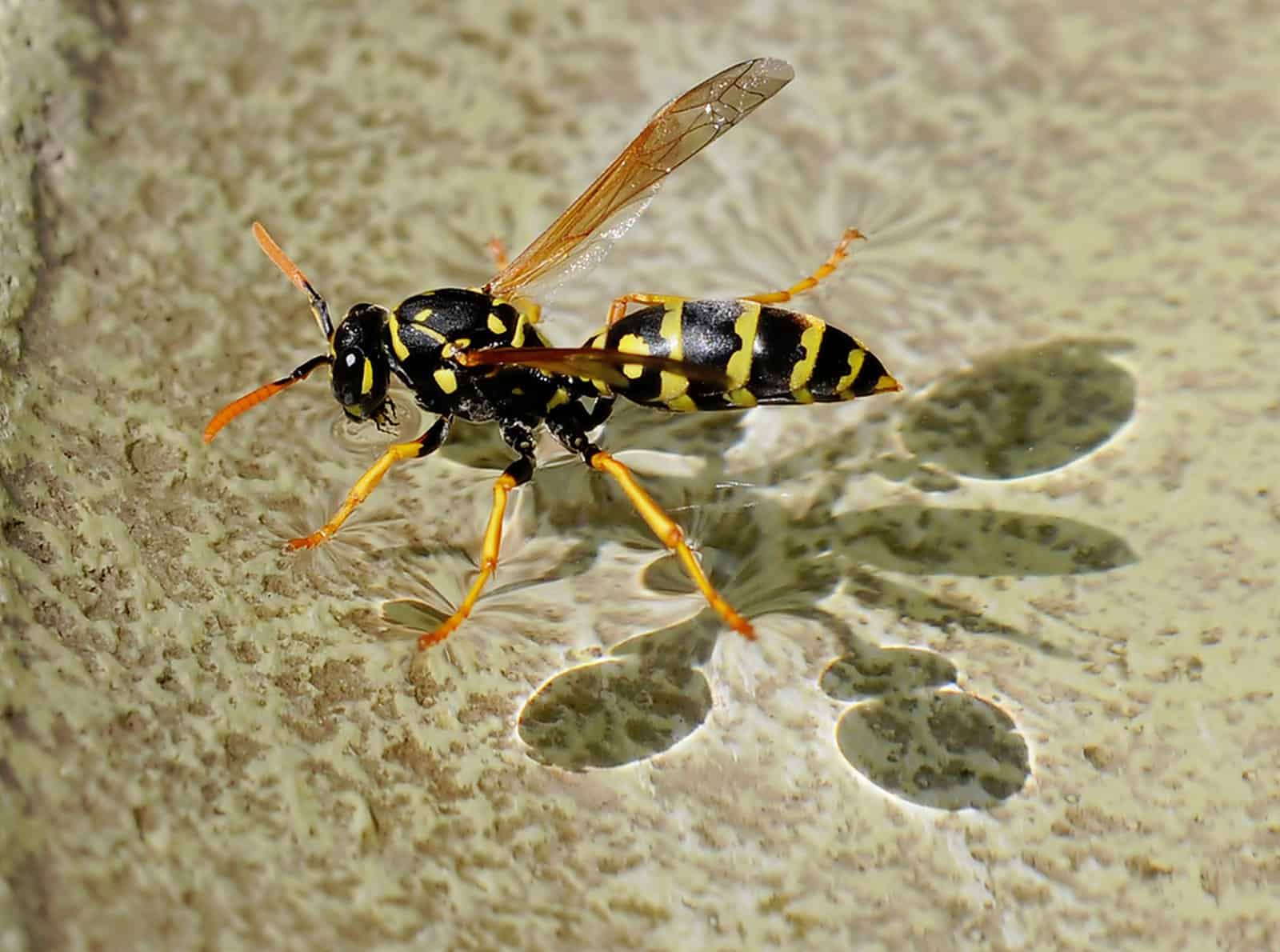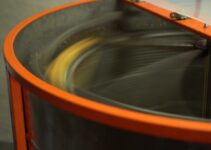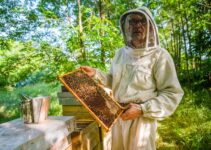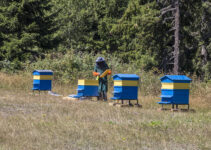Summertime is when we are more active outdoors and enjoy some fun in the pool. This time of year is also when wasps and bees are most active, and they can become a nuisance and spoil our poolside fun and relaxation. We have some ideas you can use to keep these critters at bay and enjoy your pool time unhindered.
Wasps and bees can be kept away from your pool by making your pool area undesirable for these creatures or providing them with an alternative source to find what they need. Taking preventative measures early in the spring will prevent bees and wasps from becoming established around your pool area.
Sharing your summer pool time with critters such as bees and wasps is not fun most people expect to have poolside! Understanding what attracts these creatures to your pool will help to develop a strategy to keep them away. We have some ideas to keep both bees and wasps away from your pool based on what attracts them to the water.
Keeping Wasps And Bees Out Of Your Pool Area
Bees and wasps are not related to each other, but they both need water for different reasons. Understanding why they come to the pool area is the first step in developing a plan to keep them away.
Bees need water to turn nectar into honey, and they use water to manage the temperature and humidity of the hive. Bees collect water from a water source, such as your pool, and carry it to the hive, where they put it to use.
Bees seem to be drawn to water with chlorine, probably because the distinctive scent of chlorine makes it easy for them to locate the water source with their sense of smell.
Wasps are attracted to water for different reasons. Many wasp species use water to make their mud homes, to drink for hydration, and prey on other insects attracted to the pool area.
The important aspect to remember about bees and wasps is that they are not out to get you, but in an encounter around your pool, they feel threatened and defend themselves in the only way they know how.
Strategies For Keeping Bees Away From Your Pool
If you typically have problems with bees around your pool in summer, it is better to have a plan to keep them away than be reactionary once summer has arrived.
Some of our suggestions require planning to keep the bees away as a long-term strategy, while others provide short-term deterrents.
Don’t Attract Bees To The Pool
Plants and flowers around the pool area are attractive to humans, but they can also attract bees to your pool.
You can plant flowers around your pool area and have beautiful flowers to brighten the space, but being selective about the types of flowers will help keep the bees away.
The following flowering plants are not attractive to bees.
- Marigolds. Marigolds are available in a wide range of colors and sizes. These flowers are difficult for bees to access, and the smell of the flowers acts as a deterrent to bees and wasps.
- Geraniums. These plants have beautiful flowers in various colors. The scent of the plant and flowers repels bees, wasps, and mosquitoes.
- Artemisia plant family. These plants are also known as wormwood or mugwort. They are part of the daisy family, but bees dislike the plant’s scent or the small flowers.
- Chrysanthemums. These plants have flowers without sufficient nectar and pollen to be an attractive resource for bees.
Carefully selecting the plant varieties you plant around your pool area can be an effective deterrent for bees.
Use Plants That Repel Bees Around Your Pool
Plants that do not attract bees are good to have around the pool area, but plants that actively repel them will increase the deterrent level.
Plants such as citronella, mint, and penny royal, combined with plants that do not attract bees, allow you to have a colorful garden around your pool area without attracting bees.
Provide An Alternative Water Source For Bees
If you watch the flight path of bees coming into your pool area, you will notice the bees mostly arriving from a certain direction.
Intercepting them in this flight path by providing an easily accessible water source will deter many bees from targeting your pool area.
A shallow bird bath with pebbles in it to provide a place for the bees to land and drink is an ideal drinking station for bees. The pebbles must protrude above the water level, so the bees do not drown.
Use A Bee Repellant To Keep Bees Away From Your Pool
Create your own bee and wasp repellant spray to keep the critters away from your pool and outdoor entertainment area.
A mixture of liquid soap, peppermint essential oil, cinnamon, and cayenne pepper is an effective spray-on solution to keep bees and wasps away while you enjoy your pool area.
Use a 35oz or 1-liter spray bottle to create your bee-repellant mixture. Mix 2 teaspoons of liquid soap, 5 drops of peppermint essential oil, and 1/8 teaspoon each of cinnamon and cayenne pepper.
Fill the spray bottle with water and shake to mix the ingredients. Spray the mixture on your outdoor furniture, paving around the pool and outside tables to keep the bees and wasps away.
It is best to spray each time you go outside to use your pool area to strengthen the smell of the mixture and keep the pests away.
Strategies For Keeping Wasps Away From Pools
Wasps are notorious for ruining outdoor family activities and are often more feared than bees due to their ability to sting repeatedly.
Use Plants To Keep Wasps Away From Your Pool
Plants can be an effective deterrent to keep wasps out of your pool area and prevent them from taking up residence around your pool.
The same plants we discussed for keeping bees away also keep wasps away. Using the recommended plants will discourage wasps from venturing near the pool area.
If you already have a wasp problem around your pool, you may need to get a little more creative with some of our other solutions.
Use Wasp Traps Around Your Pool Area
Sometimes the only way to thin out the wasp population in your pool area is to use traps that attract them and kill them.
While none of us like to cause harm to the environment, a trap is sometimes necessary to use traps to get rid of wasps and then establish countermeasures and deterrents to keep them away.
Wasp traps are filled with chemical attractants to entice the wasps to enter the trap, from which they cannot escape.
It is important to locate the traps away from your pool area, so the wasps move away from your pool towards the traps. Don’t hang the traps in your pool area; this will attract more wasps into your outdoor space.
Traps such as the RESCUE! Disposable Yellowjacket Trap, or the RESCUE! Reusable Yellowjacket Trap are both good options to consider.
Put Up Decoy Wasp Nests Around Your Pool
Wasps are territorial creatures and will not invade an area where they detect another wasp nest. Several decoy wasp nests are available that use this territorial nature of wasps to keep them from entering your pool area.
Placing these fake nests in strategic areas around your pool will discourage roaming wasps from coming close and risk attacks from other wasps.
Decoy nests, such as the Wasp Nest Decoy, let was know that the area is claimed and they should move on to another location.
Have Wasp Nests And Bee Hives Removed Professionally
If you already have a wasp nest in your garden or the bees have made a hive near your pool area, do not try to remove these nests yourself.
It is worth the money, and your safety, to have a professional come in and remove these creatures correctly. Choose a beekeeper to remove the bees, and the beekeeper will re-home the bees without destroying the colony.
In most cases, wasp nests must be destroyed to get them to leave. A pest control company would be the best choice to remove a wasp nest.
Conclusion
Sharing our outdoor entertainment area and pool area with bees and wasps is not practical for most people, even if you don’t want to harm these creatures. To enjoy the summer around your pool without the worry of stings, you need to take steps to control wasps and bees around this space.
Wherever possible, use environmentally friendly measures rather than chemical measures that could harm other creatures or pose a threat to your own health.
References
https://earth911.com/home-garden/natural-bee-repellent/
https://www.jcehrlich.com/blog/10-plants-that-repel-bees-and-wasps/
https://www.gardeningknowhow.com/plant-problems/pests/insects/deterring-bees-wasps-with-plants.htm




